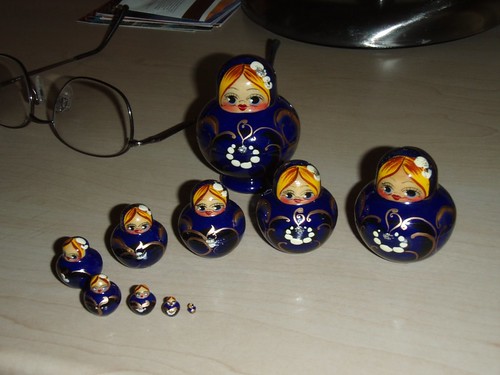In between times of wondering if slavery in the USSA means crushing my business, I wonder about something else: could the old USA legally make civilian boarding schools for future diplomats?
They're public schools, and free, and not as exclusive as one might think, once they prove popular. Boarding schools feed into national service, which is mainly military only for a minority (ballistics is also a peacetime physics).
You're immediately thinking I'm naive, who could afford it, but changing the sheets in a government run hotel, with someone from another nation your housekeeping peer, is not a snapshot of some high roller casino gambler lifestyle ala James Bond 007.
When I say "for future diplomats" I mean everyday people, the brightly lit bulbs (if getting enough joules). They need the usual in terms of food, clothing, shelter, if expected to perform in their roles. We all learn about Theater and sharing props among productions.
I'm not saying everyone eats caviar and drives a Rolls Royce. We can't all be Rajneeshees (Oregon joke). Institutional wealth is not the same as individual wealth. I have access to Maker Spaces as a payer of property taxes to Multnomah County. Provided I'm allowed to have an income after taxes, not a given.
I'm saying a civilian trained as a diplomat is your average New Yorker, gruff maybe, but not inexperienced with the "diversity syndrome" (that from which we suffer post the Babel event). New Yorkers rub shoulders across many ethnicities without being too uncool about it (not always the history).
But not all of us live in New York City, and besides, what if we like to camp? America was created by people fond of the Great Outdoors, by which they don't mean cast to the elements. Think of a high tech yurt. That was the all American prototype, never mass produced in this Parallel Universe (the one we're in).
And yes, in case you were wondering: I am suggesting a percentage of the student body not be from the USA at all, in terms of citizenship, but on scholarship and there to develop friendships and relationships with American born (or otherwise naturalized).
Yes, you're correct, I'm just trying to recreate the international schools upbringing I enjoyed through much of my youth. Except I wasn't in a boarding situation until after high school, which was a normal pattern.
I want to make the international school experience a "brought to you by the USA" opportunity, with no shortage of other nations wishing to follow suit. I want to democratize an opportunity that would seem to oft be wasted on a spoiled elite. Wouldn't the world benefit? Why don't more citizens get this opportunity?
Nice fantasy (right?) and you may point to rare institutions such as West Point and suggest we have something like that already.
But did you, growing up, ever realistically imagine joining a faraway campus life for the purpose of becoming a citizen diplomat?
Maybe as a privileged person you good imagine a good life in the foreign service, through the State Department, but did your public school ever beacon you with such a promise?
Working backwards from this fantasy, I'd posit the State Department would be very strong in this Parallel Universe. Families see Diplomacy as a high calling and they understand comes with elements of risk.
However, such sentiments run strong in many religious sects already, wherein the kids get pressured to do missionary work. So it's not hard to conjure in the imagination a USA that offers diplomacy skills much as some religious orders offer training in yoga, meditation and the martial arts.
Throw in driving and horse-riding skills.
Driving might include using electric ATVs in unpaved terrain. Cut to recruiting commercial (at a theater near you).
I know, I know, it's all starting to sound a lot like Spy Camp, once those gadgets get thrown in. From the outside, a remote high tech campus based on domes and yurts, with "foreigners" present, might as well be some kind of spooky intelligence operation. But can't we just call it a public school?
Other nations would have evolved in this direction, with a popular Chinese Peace Corps program almost wiping out any shortage of eyeglasses and dental work for middle America's urban poor. Detroit was a successful pilot study. Chinese went home with a more realistic picture of what poverty in America looked like, before Better Times.
However injecting that much life into a Peace Corps dream would take some doing, right? We don't hear any presidential candidates boasting of Peace Corps vet status.
Most media-groomed youth are reconciled to a world their forefathers have thoroughly messed up, by going off half cocked many times in a row, acting out of ideological predilections (reflex conditioning). Americans are now circling the wagons, preparing to be hated much as the Nazis were.
But that's a different fork in the science fiction. In this picture, we're looking at a US less besieged, less anxious about the trouble a few have caused in its name. As a pioneer in civilian services, the new US banks relatively less on fear of its armed forces, when it comes to cajoling cooperative actions.
I'm not just broaching this topic out of the blue by the way. I'm back to one of the ongoing themes in these blogs.
For example, you may have maybe seen my pushing for all-the-way-remote study and research facilities. Search on "XRL" and take a gander.
These Global U villages are not gulags. People go there by choice, to do science and to discover more about sometimes stressful environments.
These motivations are well known and quite credible, so we've got some realism going there.
I've heard a lot about the mosquito issue in places around Great Slave Lake (northern Canada) and have wondered about a geodesic dome enclosed mini-campus as a potentially mosquito-free interior, whereas going outside might merit a hazmat suit.
We'd be pioneering lifestyles in which livable interiors would be carved out of insect kingdoms, but not in such a way as to destroy the balance.
There's a "prime directive" aspect to these remote living experiments: to seek minimum impact co-existence strategies, and to eventually quit the site all together, leaving little to no trace.
I'm not saying I'm against semi-permanent settled communities, more the norm, just that I'm also interested in eco-villages with a pre-planned site time. This may sound unrealistic to some but is both a movie industry and traveling circus standard.
Picture a miniature Burning Man type community that wanders the globe is an approximation. Yes, product placement may be a part of it. Remember the Expos.


